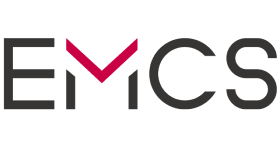Malta’s Blockchain and Fintech Regulatory Framework came into effect as from 1st November, 2018. This regulatory framework includes both regulation for the Blockchain technology and for the Fintech space, including ICOs and Service Providers like Crypto Exchanges. For further details on this regulatory framework, kindly contact: silvan.mifsud@emcs.com.mt
Public Finances – Balanced Public Finances by end Q3 2018
In the period January-September 2018, Government’s Consolidated Fund registered a surplus of €3.1 million. In January-September 2018, recurrent revenue amounted to €3,128.7 million, 5.3 per cent more than the €2,972.3 million recorded in 2017. The increase was primarily the result of higher Income Tax and Value Added Tax collected which both increased by €68 million and €62 million respectively. Compared to first three quarters of 2017, total expenditure stood at €3,125.6 million up from €2,915.9 million due to added outlays on recurrent expenditure and capital expenditure which outweighed lower spending on interest payments.
By the end of September 2018, Central Government Debt stood at €5,239.3 million, a €321.6 million decrease from the corresponding month last year. This was the result of lower Malta Government Stocks and Foreign Loans that decreased by €635.6 million and €10.4 million respectively.
Inbound Tourism – An 11.9% decrease in cruise liner calls and passengers
Total cruise passenger traffic during the third quarter of 2018 amounted to 188,943, a decrease of 11.9% over the corresponding period in 2017. There were 95 cruise liner calls during the third quarter of 2018, four less than the previous year. During the first nine months of the year, total cruise passengers stood at 441,547, a drop of 8.6% over 2017. Of these, 67% came from EU Member States. There were 215 cruise liner calls during the first nine months of 2018, with an average 2,054 passengers per vessel, compared to 248 calls and an average 1,947 passengers per vessel in January-September 2017
Unemployment – Drop in Unemployment continues
In September 2018, the number of persons registering for work stood at 1,813 decreasing by 26.7% when compared to the corresponding month in 2017.
Malta’s Latest Economic & Financial News
By the end of September 2018, the stock of licensed motor vehicles stood at 382,605, an increase of 3.6% over the same quarter in 2017. Newly-licensed vehicles put on the road in Q3 2018 amounted to 6,488. The majority of the newly-licensed vehicles, 4,632 or 71.4 % of the total, were passenger cars. Newly-licensed ‘new’ motor vehicles amounted to 2,897 or 44.7 % of the total, whereas newly licensed ‘used’ motor vehicles totalled 3,591 or 55.3%. This means that an average of 71 vehicles per day were newly-licensed during Q3 2018.
Economic growth in the Eurozone has slumped to levels last seen more than four years ago after stagnation in Italy helped slow the rate of expansion to 0.2% in the latest quarter. Figures from the EU statistics agency Eurostat showed a marked and unexpected slowdown in the third quarter of 2018, in the latest evidence of a slowdown of economic activity around the world since the start of the year.
• Below please find key highlights from Malta’s 2019 Budget:-
(i) Families who earn an annual gross salary of less than €20,000 shall be eligible to an increase in the children’s allowance at a maximum rate of €96 per child.
(ii) Non-contributory medical assistance shall increase by €5.14 per week. This is awarded to married individuals whereby both adults suffer from chronic diseases and are already receiving such assistance.
(iii) Contributory and non-contributory pensions shall be increased by €2.17 per week
(iv) Refund for wedding expenses shall increase to a maximum of €2,000.
(v) The bonus received by individuals who did not pay enough social security contributions to be entitled to a minimum pension shall increase to €200 per year for individuals who paid such contributions for more than 1 year but less than 5 years. The bonus for individuals who paid such contributions for more than 5 years shall increase to €300 per year.
(vi) An increase in pension for individuals who are eligible to retire but decide not to do so is now eligible to people working within the public sector as well.
(vii) Assistance for persons suffering from severe disabilities shall increase to €150 per week. The allowance for children with disabilities shall increase to €25 per week.
(viii) Self-employed individuals who terminate operations and start registering for employment shall be entitled to unemployment contributions based on social security previously paid.
(ix) A reduced rate of tax upon sale of the property shall be introduced to incentivise property owners to rent out properties at more affordable rates for a period of 7 years.
(x) An Equity Sharing scheme is being proposed for persons over 40 years of age who may be finding difficulty in financing the purchase of their homes. It will be possible for banks to issue loans for up to 50% of the property price with a repayment plan over a number of years during which the Government will be paying the element of interest.
(xi) The Home Equity Release working group has concluded its mandate and this will allow pensioners to improve their standard of living. Further details are expected in the coming weeks.
(xii) Free Tal-Linja Card incentive to persons aged between 16 and 20 is to be extended for the current year, and introduced to full time students aged over 20 years. Persons aged 14 and over will also be benefitting from such scheme. Discussions to begin with CRPD Agenzija Sapport, to grant free card to disabled persons.
(xiii) An additional day of leave to be awarded to employees to make up for feast days that fall in a weekend to be sustained.
(xiv) Employees that earned a minimum wage during 2017 shall receive a further €3 per week in the coming year.
(xv) All secondary students along with two adults will be entitled to visit the Heritage Malta museums free of charge.
(xvi) All MATSEC and SEC fees will be eliminated.
(xvii) Employees shall again be awarded a tax refund which is calculated based on the annual salary of the individual.
(xviii) Employees registered as single persons for tax purposes who receive income from part-time work in excess of €9,100 bracket but not the minimum wage will no longer be taxed.
(xix) The introduction of tax incentives towards the investment in the third pillar pension and occupational pension scheme. The first €2,000 shall be exempt from tax. Furthermore the tax reduction rate on such private pensions has increased to 25%.
(xx) Allowances for parents whose children attend independent schools have increased.
(xxi) A VAT refund of up to €70 shall be given to individuals who purchase and install reverse osmosis or similar processes. VAT on eBooks and musical instruments shall be reduced to 5%
(xxii) Fintech Accelerator has been launched by the Malta Stock Exchange to provide financial assistance to those companies within the sector.
(xxiii) The Malta Stock Exchange shall also collaborate with the blockchain and cryptocurrency industry.
(xxiv) Malta shall also work to promote and attract companies within the e-Sports sector.
(xxv) Malta Development Bank shall offer schemes and facilities for further investment by SMEs and infrastructural projects.
“Malta’s 2019 Budget offers no tricks, just treats” Dr. Joseph Muscat Prime Minister of Malta, 31st October 2018.











